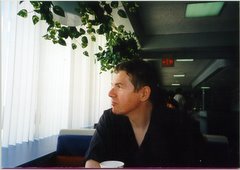Clark Ashton Smith
As part of the content-rich Resource Guide at the end of my supernatural horror short story, "It's Your Funeral," I offer five short essays on the masters of modern supernatural horror fiction—Arthur Machen, H.P. Lovecraft, Robert Aickman, Clark Ashton Smith, and Ambrose Bierce.
Perhaps Smith's best-known story, The Return of the Sorcerer, was adapted in 1972 for Rod Serling's Night Gallery, starring Vincent Price and Bill Bixby
Here are my insights on the coruscating Clark Ashton Smith, the most neglected of the great Weird Tales writers, but who has had a lasting and deep influence on American fantasy writing.
Smith's The Tale of Satampra Zeiros
Smith is certainly an influence on my short story "It's Your Funeral," which is about a certain famed Hollywood superstar who is alleged to secretly practice Santería—to further her career.
You can order it as an ebook here on Amazon for only $.99.
Masters of Classic Weird Fiction
Nobody writes about sorcery and the realm of magic like Clark Ashton Smith. With H.P. Lovecraft and Robert E. Howard), he was a member of Weird Tales’ Holy Trinity of the 1920s and ‘30s, but far lesser known.
Whether wittingly or unwittingly, Lovecraft cultivated wide public appeal with his fascinating personal mythopoetic world-building in the Cthulhu Mythos (to the degree that Cthulhu has become a catchword for universal evil), and Robert E. Howard, of course, created a stirringly heroic character—and unmistakable wish-fulfillment figure—in Conan the Barbarian.
(What a strange twist of fate it is that Robert E. Howard is the reason why Arnold Schwarzenegger became Governor of California!)
And it’s very clear from his writing that unlike Lovecraft and Howard, Smith knew women and had loved them.
One of Frank Frazetta's classic covers for the 1960s Lancer Books Conan series
(What a strange twist of fate it is that Robert E. Howard is the reason why Arnold Schwarzenegger became Governor of California!)
A Frazetta painting come to life
And it’s very clear from his writing that unlike Lovecraft and Howard, Smith knew women and had loved them.
But as Ray Bradbury observed, Smith was a master of the English language, with one of the most amazing vocabularies of the twentieth century; entirely self-taught, he read an entire encyclopedia from beginning to end as a child. His hypnotic, incantatory prose embodies the mystery and the power of magic.
Read the online PDF version of his astonishing 1970 Ballantine Adult Fantasy collection, Zothique, about Earth in the Last Days before the sun burns out, a masterpiece of neo-French Decadence when everything is permitted because no one has anything to lose anymore. (Baudelaire, anyone?) His sorcerers are unforgettable. (Jack Vance’s Dying Earth stories are practically stolen from Smith’s Zothique tales—and Vance happily admitted it.)
A Clark Ashton Smith vista
His collected fantasies have been assembled in five volumes, and Amazon’s webpage for The End of the Story: The Collected Fantasies, Vol. 1 (The Collected Fantasies of Clark Ashton Smith), will lead you to the whole set; they are the easiest introduction to his masterful work you can obtain today.
Vincent Price is anxiously awaiting The Return of the Sorcerer
But if you’ve got money to spare, nothing beats his classic Arkham House collections (check out abebooks), and his wonderful one-volume best-of collection, The Emperor of Dreams, is still available on Amazon and abebooks.
The frog god Tsathoggua, whom Smith contributed to Lovecraft's Cthulhu mythos
Smith the handsome young neo-Romantic poet at the dawn of his promising literary career: no wonder he was a successful ladies' man
Fascinatingly enough, Smith had a direct connection to our next master, Ambrose Bierce; both lived in the San Francisco Bay area, and Smith, who started out as a serious and very well-regarded young neo-Romantic poet (“Behold, I am the emperor of dreams…”), was a close friend of noted West Coast bohemian poet George Sterling, who in turn was an intimate personal and literary friend of Bierce’s.
Smith's mentor George Sterling, who tragically committed suicide
Smith was an accomplished artist
Smith spent most of his life in isolation in rural California with little money, caring for his parents and supporting himself with menial physical labor; as a result of his neglected genius, he was also reputedly an alcoholic. What a heartbreaker





















No comments:
Post a Comment